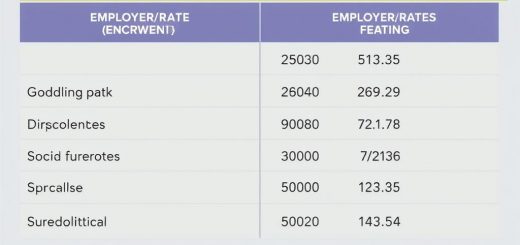Understanding Personal Income Tax Rates in Cyprus
Cyprus is widely recognized not just for its Mediterranean charm but also for its attractive tax system, especially concerning personal income tax. This framework plays a crucial role for residents, expatriates, and investors alike, bestowing both opportunities and obligations that require a clear understanding. This article explores the nuances of personal tax in Cyprus, offering a comprehensive overview of Cyprus income tax rates, the mechanisms of income taxation Cyprus, and how tax liability Cyprus is determined within the country’s tax brackets Cyprus.
Cyprus has positioned itself as a favorable jurisdiction through competitive tax policies, which appeal to individuals with diverse income sources. Personal tax Cyprus is structured to be progressive, ensuring that tax burdens scale with one’s income, but also includes thoughtful thresholds and exemptions. This balance seeks to spur economic activity while maintaining social equity.
Delving into the specifics of income taxation Cyprus necessitates an understanding of residency rules, the classification of taxable income, and the applicable rates. Moreover, examining tax liability Cyprus reveals subtleties including deductions, allowances, and compliance obligations. Navigating these factors is essential for individuals wanting to optimize their financial planning and avoid unintentional non-compliance.
The Basics of Cyprus Income Tax Rates
Personal income tax in Cyprus follows a progressive rate structure applied to taxable income. The foundation of this system is ensuring individuals contribute a fair share relative to their earnings. Tax brackets Cyprus categorize income into segments, each subject to a corresponding tax rate. This tiered approach is straightforward but demands precision in calculating taxable income.
The income range subject to taxation starts at zero for low-income earners, progressively increasing in rate as income grows. Cyprus income tax rates are generally competitive when compared with other European Union countries, contributing to Cyprus’s appeal as a residency destination.
| Income Bracket (€) | Tax Rate (%) |
|---|---|
| 0 – 19,500 | 0 |
| 19,501 – 28,000 | 20 |
| 28,001 – 36,300 | 25 |
| 36,301 – 60,000 | 30 |
| Above 60,000 | 35 |
Cyprus income tax rates use a progressive scale that begins with a sizeable tax-free allowance, allowing low-income earners to pay no personal tax Cyprus on earnings up to €19,500.
These tax brackets Cyprus apply equally to all resident individuals’ sources of taxable income, which include employment income, pensions, rental income, and business profits. It is critical to calculate the combined taxable income properly to determine accurate tax obligations.
Foreign income, however, may be treated differently depending on residency status and double tax treaties, which add another layer of complexity in determining one’s tax liability Cyprus. Cyprus’s network of treaties helps prevent double taxation and allocates taxing rights to avoid imposing two taxes on the same income.
Residency and Its Impact on Income Taxation Cyprus
One of the pivotal factors shaping personal tax Cyprus is an individual’s residency status. Cyprus tax law distinguishes between residents and non-residents primarily by the amount of time spent in the country during a calendar year. Residency determines the scope of income taxation Cyprus.
To be considered a resident for tax purposes in Cyprus, an individual must either spend more than 183 days in Cyprus in a tax year, or meet the new 60-day rule introduced to attract non-domiciled individuals under certain conditions. Residency comes with significant tax implications — residents are taxed on their worldwide income, while non-residents are only taxed on income sourced within Cyprus.
Residency status defines the breadth of personal tax Cyprus, as it determines whether an individual’s global income is subject to Cyprus income tax rates.
The 60-day rule requires the individual not to reside in any other single state for more than 183 days, must not be a tax resident in any other state, be a Cyprus resident for at least 60 days, and have other defined connections to Cyprus such as carrying out business or employment activities or holding an office in a company based in Cyprus.
This residency flexibility is a significant advantage, allowing high-net-worth individuals and expatriates to optimize personal tax Cyprus liabilities legally by making Cyprus their tax domicile. The country’s accommodating stance has drawn a wave of foreign nationals and professionals who can take advantage of Cyprus’s moderate tax rates.
Understanding Tax Brackets Cyprus in Depth
The progressive structure of tax brackets Cyprus means that each segment of income is taxed at the marginal rate applicable to that bracket, avoiding any flat or arbitrary taxation. Tax brackets create a clear and transparent method for calculating tax liability Cyprus, simplifying compliance and planning.
For each band of income, tax is charged only on the income within that bracket, not the entire amount once the next bracket is reached. This stage-based system encourages income growth without disproportionately penalizing incremental gains.
For example, if an individual’s income is €45,000, the calculation works as follows:
- No tax on the first €19,500
- 20% tax on the €8,500 segment (€19,501 to €28,000)
- 25% tax on the €8,300 segment (€28,001 to €36,300)
- 30% tax on the remaining €8,700 segment (€36,301 to €45,000)
This method diminishes the shock of higher tax brackets and rewards gradual income increases. However, it calls for precise bookkeeping and reporting of all earnings types to ensure appropriate tax liability Cyprus.
The tiered tax brackets Cyprus system allows for nuanced taxation that is both equitable and encourages income progression.
Understanding how income moves through these brackets helps taxpayers and advisors alike to plan income recognition, deferrals, or deductions, thereby managing tax liabilities more effectively.
Deductions, Allowances, and Their Role in Personal Tax Cyprus
While Cyprus income tax rates establish the percentages owed, tax deductions and allowances are fundamental in determining how much of one’s income is actually taxable. These tax relief mechanisms reduce the effective tax burden and influence final tax liability Cyprus.
Common allowable deductions in Cyprus include social insurance contributions, contributions to approved pension schemes, and certain expenses directly related to earning income. Additionally, specific tax credits or exemptions apply to categories of income, such as foreign pension income under certain conditions.
One notable feature of personal tax Cyprus is the exemption or low taxation of foreign pensions, intended to attract retirees and foreign professionals. This supports Cyprus’s strategy to retain and expand its resident taxpayer base with favorable conditions.
Allowances and deductions play a decisive role in lowering taxable income, making personal tax Cyprus more accessible and manageable.
It is imperative for taxpayers to maintain accurate documentation and seek expert advice on applicable deductions and allowances, as misuse or misunderstanding can trigger penalties or missed opportunities for tax relief.
Special Considerations in Income Taxation Cyprus
Beyond standard employment income, Cyprus income tax rates affect many other types of earnings that influence overall tax liability Cyprus. These include rental income, business profits from self-employment, dividends, and capital gains from the disposal of local assets.
Rental income is taxable after deducting allowable expenses such as mortgage interest, repairs, and maintenance costs. This encourages investment in real estate while ensuring fair taxation.
In contrast, dividends received from abroad or Cyprus resident companies are generally exempt from income tax, but are subject to other taxes such as defense tax or withholding tax under certain circumstances. This differentiation is essential in calculating total tax liability Cyprus for individuals with diversified income portfolios.
Capital gains tax applies separately from income tax but can affect overall financial planning. Notably, Cyprus does not levy capital gains tax on the sale of securities, which makes it attractive for investment strategies broadly speaking.
Income taxation Cyprus encompasses various income streams, requiring distinct treatment for each to determine the precise tax liability Cyprus.
Comprehensive understanding of these nuances is critical for personalized tax planning and compliance, ensuring taxpayers neither underpay nor overpay their dues.
Tax Compliance and Reporting Obligations
Tax liability Cyprus extends beyond understanding rates and brackets to fulfilling reporting and payment obligations set by the Cyprus tax authorities. All individuals earning taxable income in Cyprus must file annual tax returns describing their gross and net income, deductions, and taxes withheld.
The deadline for personal tax returns typically falls several months after the end of the tax year, allowing time for proper compilation of documents and records. Failure to file or late submissions can result in penalties and interest charges.
Tax payments are made via a self-assessment system where taxpayers calculate their tax liability Cyprus and pay accordingly. Cyprus also has withholding tax schemes on employment income where employers withhold taxes at source, simplifying upfront payments but requiring reconciliation through annual filings.
Cyprus income tax rates and the overall taxation system operate within a transparent legal framework, promoting voluntary compliance and audit capabilities to minimize tax evasion and fraud. The government continues to improve digital processes and taxpayer services to facilitate this compliance environment.
Proper reporting and timely payment are as important as understanding Cyprus income tax rates to avoid penalties and maintain good standing with tax authorities.
Emerging Trends and Future Outlook in Cyprus Personal Taxation
Cyprus continues to evolve its income taxation Cyprus framework to balance competitiveness with fairness. Recent changes include adjustments to tax incentives and enhanced residency criteria to attract global talent while ensuring appropriate contributions by residents benefiting from the local infrastructure.
With global tax standards shifting due to international cooperation initiatives led by organizations such as the OECD, Cyprus is actively aligning its personal tax Cyprus policies to maintain transparency and minimize tax avoidance. This includes adapting legislation on digital economy taxation and cross-border income reporting.
Future changes may see updates to tax brackets Cyprus, alterations in allowances, or new categories of taxable income in response to economic developments. Staying informed about these trends is crucial for all individuals living or working in Cyprus.
Cyprus’s personal tax system is dynamic, continuously adapting to global norms and local economic needs to remain attractive and fair.
Proactive tax planning and engagement with advisers will become increasingly important to manage tax liability Cyprus efficiently as these changes unfold.
Why Grasping Personal Income Tax Rates in Cyprus Matters More Than Ever
Understanding personal income tax rates in Cyprus is not just a regulatory requirement; it is a strategic financial necessity. Whether you are a local resident, an expatriate contemplating relocation, or an investor seeking to optimize your wealth, clarity about personal tax Cyprus ensures you manage your finances intelligently.
Tax brackets Cyprus define how your income feeds into the state’s revenue, while deductions and allowances reflect your personal circumstances. Together, they outline your tax liability Cyprus comprehensively. This knowledge equips you to make informed decisions about employment, investments, and residency status.
Ignoring the complexity of income taxation Cyprus can result in unexpected burdens or missed benefits. In a globalized economic landscape, Cyprus’s competitive tax regime is a key asset, but leveraging it requires awareness and careful planning.
Ultimately, mastering the nuances of Cyprus income tax rates empowers you to not only comply with the law but to optimize your financial position strategically. It creates opportunities to harness Cyprus’s favorable tax environment to your advantage.
Personal income tax rates in Cyprus are more than numbers—they shape your financial future and your integration into the Cypriot economy.
Frequently Asked Questions About Personal Income Tax Rates in Cyprus
- What are the main personal income tax rates in Cyprus?
Cyprus income tax rates are progressive, starting at 0% for income up to €19,500, then 20%, 25%, 30%, and reaching 35% for income above €60,000. - How does Cyprus determine if I am a tax resident?
You are a tax resident if you spend more than 183 days in Cyprus per year or meet the conditions of the 60-day rule involving residence, employment, and other connections. - Are all income types taxed the same way in Cyprus?
No, different income types such as employment, rental, dividends, and capital gains have varied tax treatments and deductions applicable to each. - Can I deduct social security contributions from my income tax?
Yes, social insurance contributions and certain approved pension contributions are deductible, reducing taxable income under personal tax Cyprus rules. - Do I have to pay tax on foreign income if I am a resident in Cyprus?
Yes, Cyprus residents are taxed on worldwide income, though double tax treaties may reduce or exempt taxes on some foreign income. - What happens if I fail to file a personal tax return on time?
Penalties and interest charges may be imposed for late filing or non-filing, increasing total tax liability Cyprus and risking further enforcement actions. - Are dividends from Cyprus companies taxable as personal income?
Generally, dividends are exempt from personal income tax but may be subject to other levies like defense tax depending on circumstances.



